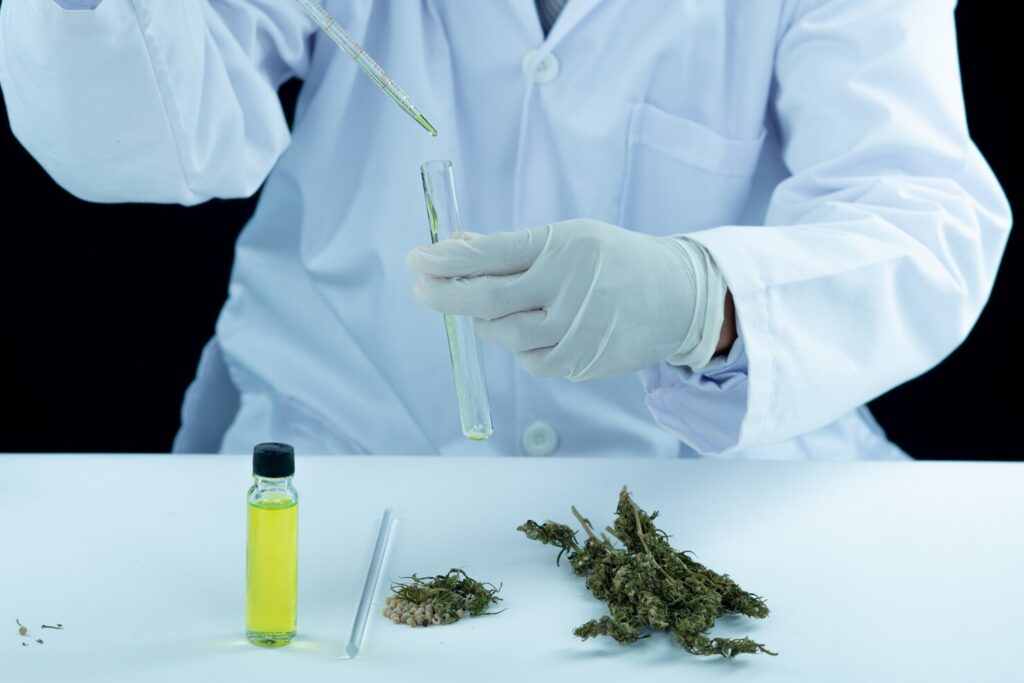Cannabis, known for its psychoactive properties due to the presence of Tetrahydrocannabinol (THC), is a substance that has piqued interest and raised questions about its longevity in the human body. As laws and perspectives shift around the world, understanding how long cannabis stays in your system becomes crucial for a variety of reasons, including legal, employment, and health concerns.
This guide dives deep into the complexities of cannabis detection, providing essential insights for anyone looking to navigate the nuances of THC metabolism and drug testing with confidence.

How Long Does THC Stay in Your System?
The duration THC remains detectable in the body varies greatly among individuals, influenced by several factors including consumption frequency, metabolism rates, and body composition. Generally, THC can linger in the system of occasional users for up to 3 days, while heavy users might find it detectable for up to 30 days or more post-consumption.
Factors Affecting THC Retention
Several key factors play a role in determining how long THC stays in your system:
- Frequency of Use: The more frequently you consume cannabis, the longer THC will stay detectable.
- Metabolism: Individuals with faster metabolisms tend to process and eliminate THC quicker.
- Body Fat Percentage: THC is lipophilic, meaning it binds to fat cells, thus higher body fat percentages can lead to longer detection periods.
- Cannabis Potency: Higher THC concentrations in consumed cannabis can extend its stay in your system.
Detection Methods
Drug testing for cannabis can vary in method and sensitivity, including:
- Urine Testing: The most common method, capable of detecting THC several days to weeks after use.
- Blood Testing: Best for identifying very recent cannabis use, typically within 24 hours.
- Saliva Testing: Indicates usage within the past few hours to 1-2 days.
- Hair Follicle Testing: Can trace cannabis consumption up to 90 days back.
Mitigating Factors
Hydration, diet, and physical activity levels can also influence THC detection times, albeit marginally. Detoxification products and methods are widely discussed, but their effectiveness and safety remain controversial.
Factors Influencing Cannabis Detection
Delving into the intricacies of cannabis retention, it’s clear that a one-size-fits-all answer doesn’t exist. The impact of lifestyle choices, biological differences, and consumption patterns plays a significant role in how long THC and its metabolites can be detected.
Biological and Lifestyle Determinants
- Genetics and Metabolic Rate: These fundamental aspects of your biology significantly affect how quickly you metabolize it.
- Consumption Method: Whether you smoke, vape, or ingest edibles can influence absorption and detection times.
- Physical Activity and Diet: While exercise and diet may have some impact on the metabolism, their effects are generally marginal compared to the primary factors above.
Navigating the complexities of these influences is essential for understanding personal THC detection times and preparing for potential drug tests.
CBD vs. THC in Drug Tests
With the rise of CBD products, many wonder about their impact on drug tests. Unlike THC, CBD is typically not targeted in standard drug screenings. However, the presence of trace amounts of THC in some CBD products can complicate test results.
- Product Selection: Choosing high-quality, lab-tested CBD products is crucial to avoid unwanted THC exposure.
- Legal Thresholds: Being aware of the legal limits for THC content in CBD products helps in making informed choices.
For CBD users, knowledge about product composition and regulatory standards is key to navigating drug tests successfully.
THC Detoxification
The internet is awash with claims of quick detox methods for eliminating THC. While certain lifestyle changes, like increasing water intake and exercising, might marginally accelerate the body’s natural detox processes, skepticism is advised.
- Natural Detoxification: The body’s own metabolism is the most reliable method for clearing THC, supported by healthy lifestyle choices. This process involves the liver metabolizing it into metabolites, which are then excreted through urine and feces. While specific foods or high water intake alone won’t dramatically speed up the elimination, staying hydrated and maintaining a healthy diet can support the body’s natural detoxification processes. Adequate hydration helps ensure that the kidneys function efficiently in filtering out toxins, including THC metabolites.
- Detox Products: The efficacy and safety of commercial detox products, such as detox drinks, pills, and kits, which claim to rapidly cleanse the body of THC, vary widely, and scientific evidence supporting their effectiveness is often lacking. In some cases, they might pose health risks due to the ingredients used.
- Herbs and Supplements:
- Milk Thistle is celebrated for its liver-protecting qualities. It assists in metabolizing THC by safeguarding and supporting liver function, thanks to its active component, silymarin, which acts as an antioxidant.
- Dandelion aids liver and gallbladder health, promoting the elimination of toxins like THC. It’s traditionally used to improve bile flow and digestive health, playing a vital role in the detox process.
- Psyllium Husk, a fiber supplement, enhances intestinal health by forming a gel that moves waste and THC metabolites out of the body, speeding up the detoxification process.
Approaching detoxification with a critical eye and realistic expectations is essential for anyone looking to reduce THC levels in their system effectively.
Conclusion
The journey through understanding cannabis detection is ongoing, and as science advances, so too will our insights into how best to navigate the complexities of THC metabolism and drug testing. For now, armed with the comprehensive guide provided, you are better equipped to make informed decisions about your cannabis use and manage the implications of detection with confidence and knowledge.
Remember, while cannabis laws and policies continue to evolve, staying informed and proactive about your consumption and its potential ramifications is the best strategy for navigating the ever-changing landscape of cannabis use and detection.




